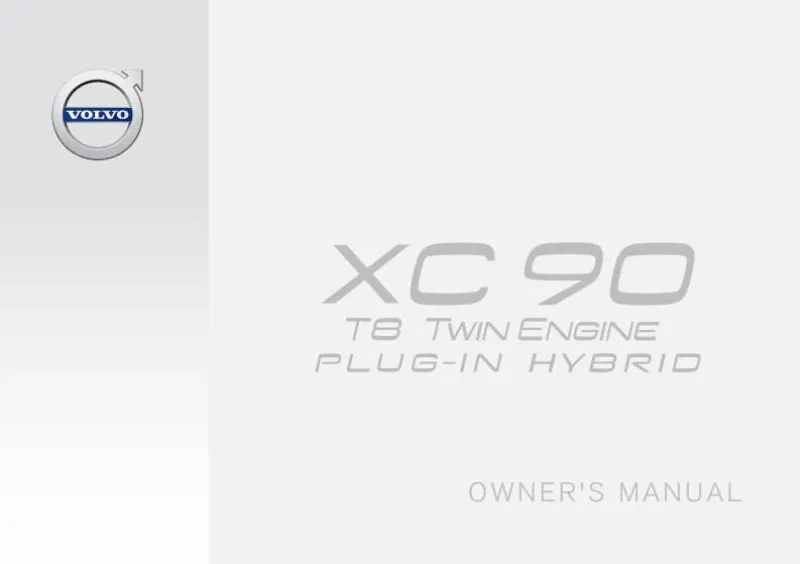2017 Volvo Xc90 Twin Engine Hybrid Owner's Manual

Table of Contents
2017 Volvo Xc90 Twin Engine Hybrid Overview
Introduction
The 2017 Volvo XC90 Twin Engine Hybrid redefines luxury SUVs by combining Scandinavian sophistication with innovative hybrid technology. This robust vehicle hosts an alluring design, comfort-focused interior, and advanced safety systems, making it a prime choice for environmentally conscious families and individuals seeking both performance and efficiency. Designed for optimal versatility and modern lifestyles, it encompasses the best of both worlds, aligning sustainability with high-end features.
Powertrains
The XC90 Twin Engine Hybrid is powered by a 2.0-liter turbocharged four-cylinder engine coupled with an electric motor, delivering a combined output of 400 horsepower. This dynamic powertrain allows the vehicle to accelerate effortlessly while maintaining a commendable fuel efficiency rating. The hybrid system provides an all-electric driving range suitable for short trips, while the gas engine ensures peace of mind for longer journeys, making it versatile for various driving needs.
Trims
The 2017 XC90 Twin Engine Hybrid is available in three luxurious trims: Momentum, Inscription, and R-Design. Each trim offers a distinct level of sophistication and character, encompassing features like premium leather upholstery, advanced sound systems, and panoramic sunroofs. The Inscription trim enhances luxury with premium finishes, while the R-Design variant adds a sportier aesthetic with unique styling cues and performance enhancements.
Features
This model boasts an impressive suite of features designed for comfort and safety. Among these are a large touchscreen infotainment system, navigation, a premium audio system, and a suite of driver assistance technologies such as adaptive cruise control, lane-keeping assist, and automatic emergency braking. The interior showcases ample space, adaptable seating configurations, and expansive cargo capacity, ensuring convenience for any adventure.
Owner's Manual
The owner's manual for the 2017 Volvo XC90 Twin Engine Hybrid is a comprehensive resource, guiding owners through the vehicle's features, maintenance schedules, and troubleshooting tips. It provides essential information on hybrid operation, ensuring that drivers maximize efficiency while enjoying the benefits of advanced technology and luxury that Volvo is renowned for.
User manual download
The Volvo Xc90 Twin Engine Hybrid owner manual for the 2017 model year is to be found in PDF downloadable format on this page. The owner manual for the model year 2017 is free and in English, but the repair manuals are usually not easy to get and may cost more.
Manual Questions
Fill the form below and someone will help you!
